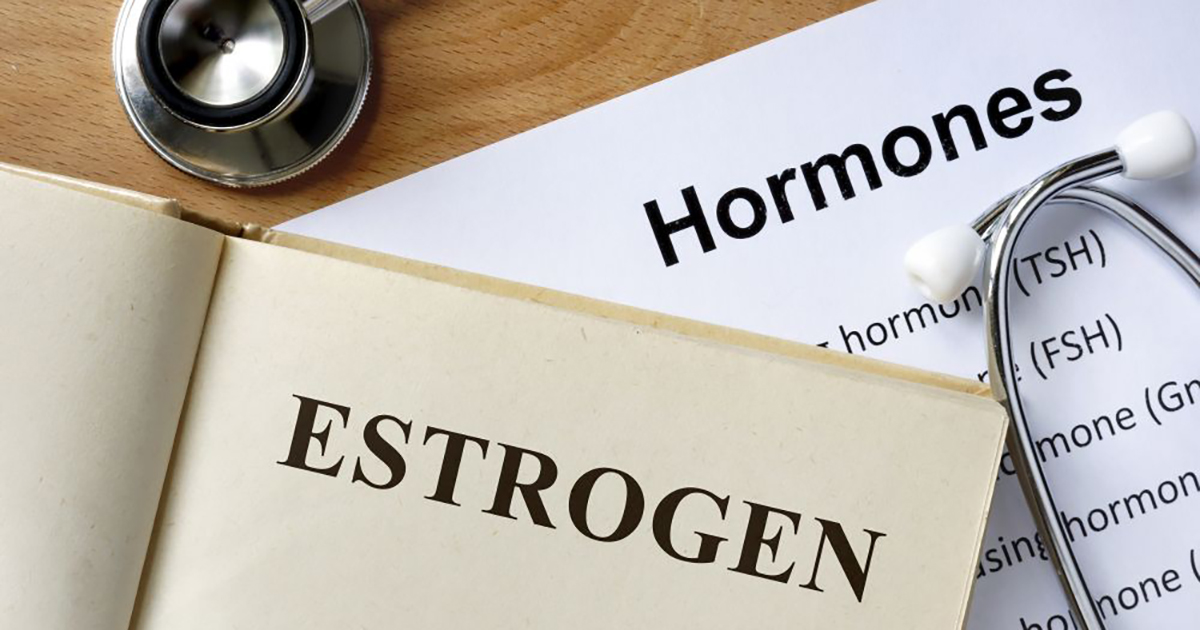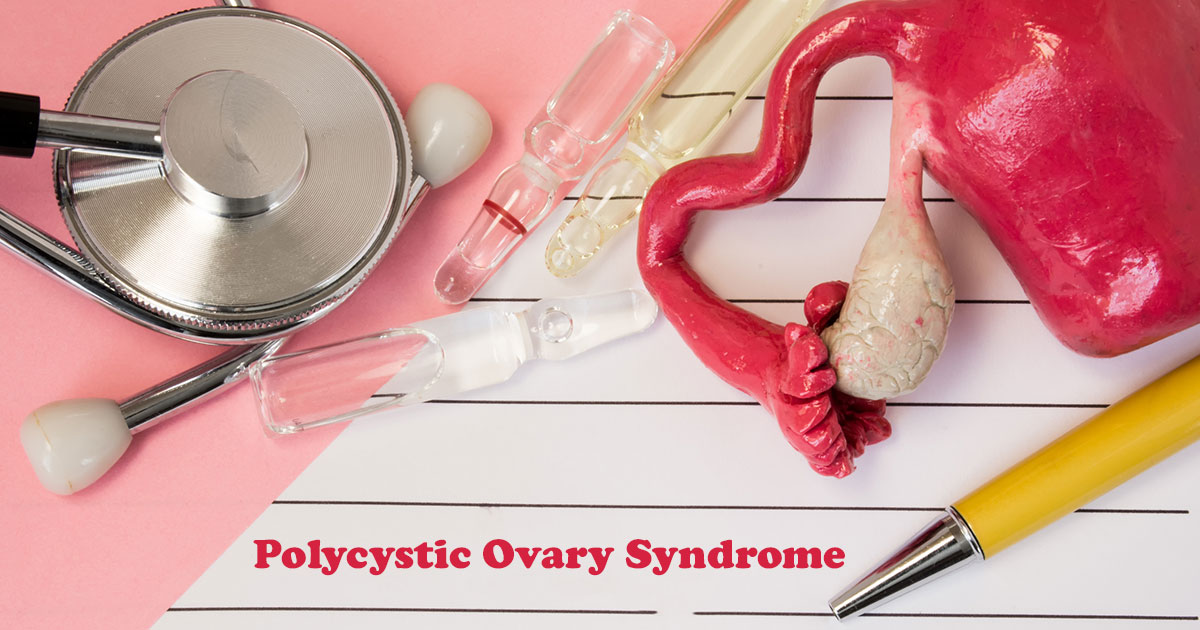What Causes A Light Period?
Every woman experiences their "time of the month" differently, and there are various factors that affect menstrual flow. Some women may have difficulty with heavy flows, while others breeze through their period with no problems whatsoever. Everyone has their own "normal" regardless of the duration or amount of blood flow. Women have to pay close attention to the changes in their cycle to recognize potential health issues. A normal period typically lasts from two to seven days. Most women have consistent periods with the same amount of days and flow, but some women's cycles are not as predictable. Spotting or light bleeding for less than two days or missing one or more periods could be an indication of one of the health conditions below.
Pregnancy

The menstrual cycle ceases during pregnancy and doesn't return until after the birth of the child. Women typically do not have their periods during this nine-month period because the uterine lining is needed to nourish and provide a home for the growing fetus. Almost thirty percent of women will have some light bleeding or spotting in their first trimester. This can be caused by different issues, such as cervical irritation, infection, or a possible miscarriage.
Implantation bleeding is a common cause of spotting or a light period. It happens when the fertilized egg becomes embedded in the wall of the uterus. This usually happens around the time of the next expected period, confusing many women. Implantation bleeding is usually much lighter than a normal period, and the color may be pink or dark brown. Some light bleeding in the early stages of pregnancy is considered normal. However, you should inform your doctor if it doesn't go away or becomes heavier, especially if it's accompanied by painful cramping or back pain.
Stress

Stress is a normal part of life, but it can affect a woman's menstrual cycle and cause a light or missed period. The release of hormones that control the menstrual cycle can be altered or blocked because of too much emotional strain. The daily rigors of life that cause distress are usually not severe enough to impact the menstrual cycle, but major life stressors or a very stressful event can create an abnormal period.
Emotional stresses such as divorce or the loss of a loved one can take an extra toll on the body and mind. Women who experience an extraordinary amount of stress at home or work can also experience changes in their cycle. Physical stresses, such as over-exercising or extremely strenuous exercise can also affect your cycle and cause a light or skipped period. Periods should return to normal after the stressful period or event has passed.
Gaining Or Losing A Lot Of Weight

Your weight and body fat can affect your period and cause irregularities. Your period can become irregular if you are very underweight because your hormones are not functioning as they normally would. A low body weight can disrupt hormone production and this, in turn, may cause lighter menstrual periods. In addition, extreme fluctuations in weight can cause inconsistencies with your menstrual cycle. It's important to eat a healthy, balanced diet and avoid gaining or losing a lot of weight in a short time period. Eating disorders, such as anorexia nervosa and bulimia often lead to low body weight. This will upset the balance of hormones that control your menstrual cycle and cause irregular or light periods.
Hormone Imbalance

Hormones are a big part of a woman's menstrual cycle, and an imbalance will more than likely affect your period. The two hormones responsible for your cycle are estrogen and progesterone. Their amounts increase and decrease at various points throughout your cycle, and any fluctuation will affect your period. For example, estrogen is responsible for thickening the lining of the uterus, so an insufficient of the hormone will result in a thinner lining. There will be much less shedding and bleeding in that case. High levels of testosterone can also cause light periods. High levels of this hormone may alter the menstrual cycle by suppressing ovulation. If your periods have suddenly become much lighter, it may be a sign of a hormone imbalance. Your doctor can run a hormone test and prescribe the proper medication to get you back on track.
Specific Conditions-PCOS

Polycystic Ovary Syndrome (PCOS) causes a hormonal change in your body that could result in irregular periods or other changes. The condition causes the ovaries to become enlarged with many fluid-filled sacs around the egg. This disorder is fairly common, and the resulting imbalance of hormones can shorten your period, cause painful periods, or lead to light or heavy bleeding. Polycystic Ovary Syndrome causes high levels of testosterone, and this reduces blood flow during your periods. Testosterone is one of the hormones that is converted into estrogen to help the uterus rebuild its lining.
Some women with specific conditions, such as PCOS, may stop having periods altogether. Women experiencing irregular periods or none at all may have the condition unknowingly. Some women are asymptomatic. PCOS can be diagnosed by performing an ultrasound. Medications are available to improve ovulation and thereby help to regulate your menstrual cycle. Birth control pills and weight loss may also help your period get back on track.
An Overactive Thyroid

The thyroid gland is located in your neck and is responsible for various bodily functions. The thyroid helps the process of energy and oxygen being transported to your cells, tissues, and organs. An overactive thyroid results from too much thyroid hormone and is referred to as hyperthyroidism. It can cause a host of serious issues for many parts of the body, including the heart and muscles.
Hyperthyroidism causes abnormally light periods and missed periods. It's more common to suffer from hypothyroidism, which is when you don’t have enough of the thyroid hormone. Some sufferers can feel the nodules pushing against their neck. Many women are unaware that an untreated thyroid condition can affect their periods. See your doctor for treatment if you suspect a problem with your thyroid.
Other Factors

There are many reasons why your period can appear light or scanty, including age, breastfeeding, birth control methods, and menopause. Hormonal imbalances during the teen and menopause years can cause light periods. Your menstrual cycle will gradually slow down as you approach menopause. Some of your periods may be light during this time. This can start during your mid-thirties, and go well into your early forties and fifties. This is due to you having fewer functional eggs and less estrogen production.
Breastfeeding produces a hormone that aids milk production and simultaneously prevents ovulation. This works to delay the return of your period. You can still get pregnant, however, so spotting or what appears to be a light period may be a sign of implantation bleeding. Birth control can also cause irregular or light periods. Many methods of birth control prevent the release of an egg from your body. Your uterus won't have a thick lining under these circumstances, so your period may be light or not happen at all. Menstrual irregularities can also occur when you start or stop taking birth control.
